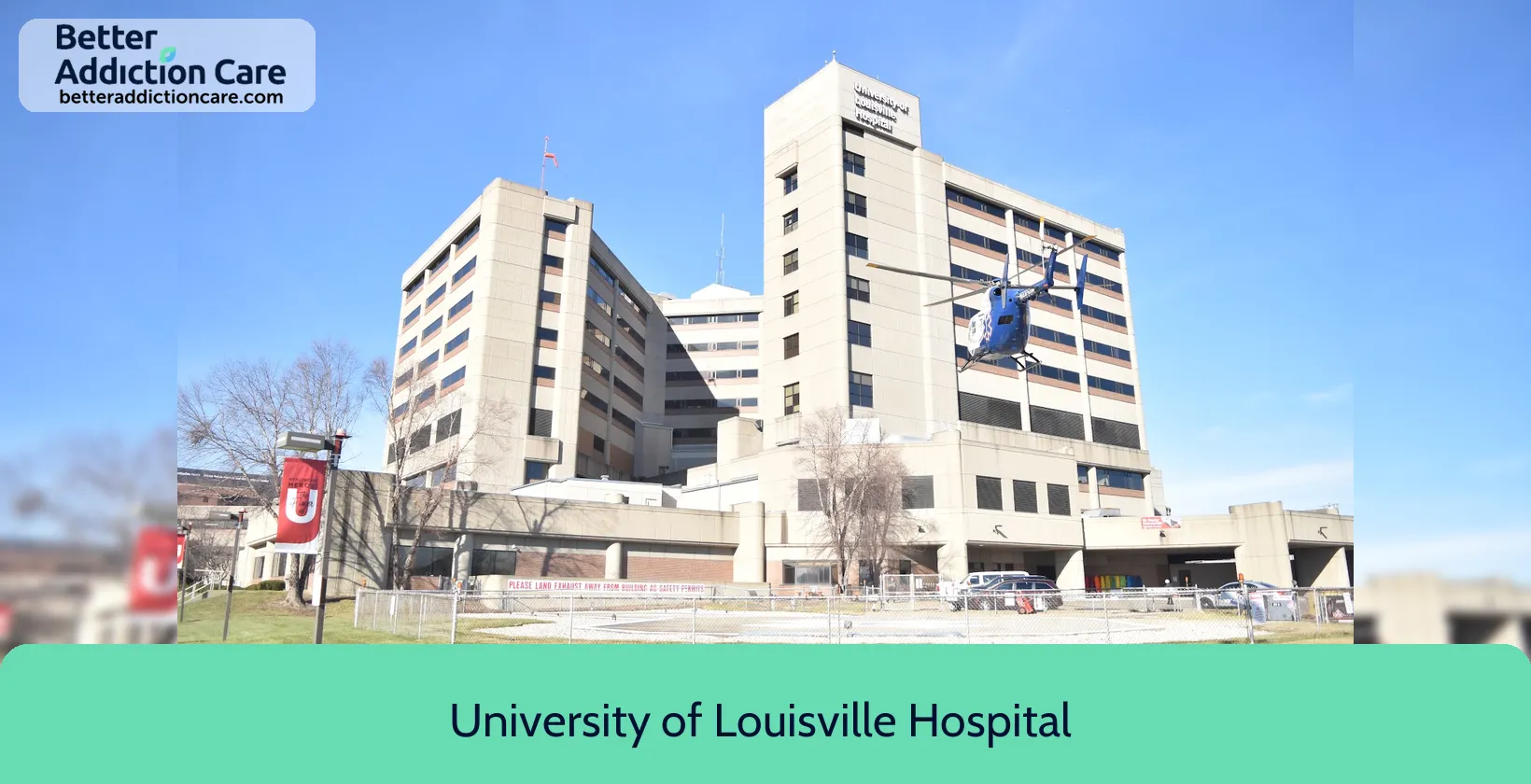University of Louisville Hospital - Emergency Psychiatric Services (EPS)
Overview
University of Louisville Hospital - Emergency Psychiatric Services (EPS) is a mental health treatment center for people seeking treatment near Jefferson County. As part of their treatment modalities for recovery, University of Louisville Hospital - Emergency Psychiatric Services (EPS) provides group counseling, cognitive behavioral therapy, and dialectical behavior therapy during treatment. University of Louisville Hospital - Emergency Psychiatric Services (EPS) is located in Louisville, Kentucky, accepting cash or self-payment for treatment.
University of Louisville Hospital - Emergency Psychiatric Services (EPS) at a Glance
Payment Options
- Cash or self-payment
- Medicaid
- Medicare
- State-financed health insurance plan other than Medicaid
- Private health insurance
Assessments
- Screening for tobacco use
- Comprehensive mental health assessment
- Comprehensive substance use assessment
Age Groups
- Young adults
- Adults
- Seniors
Ancillary Services
- Case management service
- Chronic disease/illness management
- Court-ordered outpatient treatment
- Diet and exercise counseling
- Education services
Highlights About University of Louisville Hospital - Emergency Psychiatric Services (EPS)
6.71/10
With an overall rating of 6.71/10, this facility has following balanced range of services. Alcohol Rehabilitation: 8.00/10, Drug Rehab and Detox: 6.00/10, Insurance and Payments: 6.00/10, Treatment Options: 6.85/10.-
Alcohol Rehabilitation 8.00
-
Treatment Options 6.85
-
Drug Rehab and Detox 6.00
-
Insurance and Payments 6.00
Treatment At University of Louisville Hospital - Emergency Psychiatric Services (EPS)
Treatment Conditions
- Mental health treatment
- Alcoholism
- Substance use treatment
- Co-occurring Disorders
Care Levels
- Hospital inpatient/24-hour hospital inpatient
- Outpatient
Treatment Modalities
- Group counseling
- Cognitive behavioral therapy
- Dialectical behavior therapy
- Integrated Mental and Substance Use Disorder treatment
- Activity therapy
Ancillary Services
Languages
- Sign language services for the deaf and hard of hearing
- Spanish
Special Programs
- Persons 18 and older with serious mental illness (SMI)
Contact Information
Read our Most Recent Article About Drug Addiction
DISCLAIMER: The facility name, logo and brand are the property and registered trademarks of University of Louisville Hospital - Emergency Psychiatric Services (EPS), and are being used for identification and informational purposes only. Use of these names, logos and brands shall not imply endorsement. BetterAddictionCare.com is not affiliated with or sponsored by University of Louisville Hospital - Emergency Psychiatric Services (EPS).









